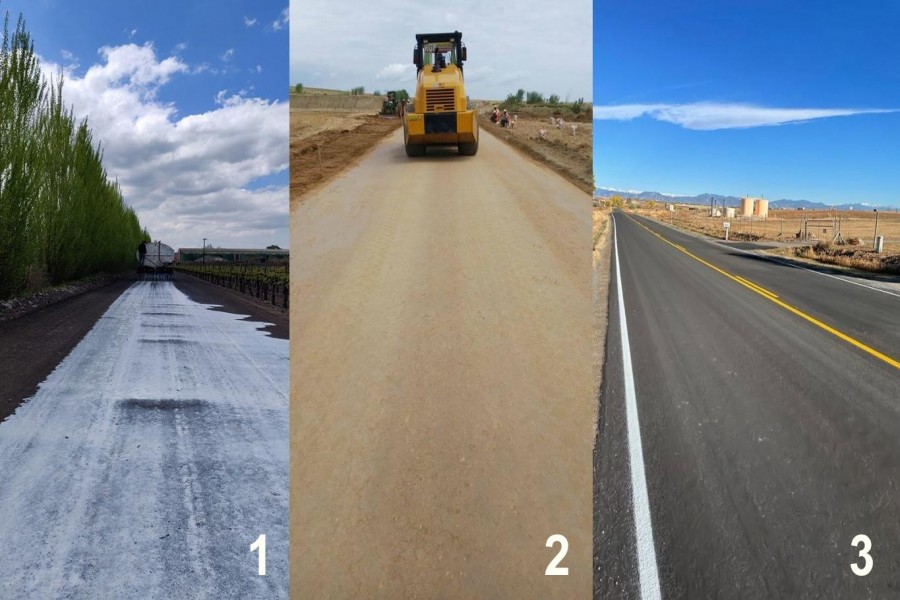Road building experts expect to drastically minimise time and cost in constructing durable roads and highways across Bangladesh with introduction of a new technology, opening up a new horizon for the country’s fast growing communication sector, BSS reports.
“We can build 100 kilometer road in one month using this nanotech product – the acrylic polymer,” Roads and Highways Department (RHD) additional chief engineer Fazle Rabbe told the state-owned news agency.
He said an initial study by an expert group came up with a conclusion that the technology was suitable for soil of any type across Bangladesh and it would reduce roads construction cost by at least 30 per cent.
The RHD official, who led the six-member expert team in carrying out the study, said acrylic polymer-built roads would require minimal maintenance cost as well due to their durability.
“We can foresee the echo-friendly technology would pave ways for Bangladesh to enter into the 4IR (Fourth Industrial Revolution) era and more importantly it is now within our reach,” Rabbe said.
Over the past several years, Bangladesh witnessed a steady increase in budgetary allocation for communication sector in view of demands for expanded road networks.
A total of Tk 312.96 billion was sanctioned for the road transport and highways division in the budget for the current fiscal, which is 12.7 per cent of the total development budget. The amount was Tk 280.42 billion in the outgoing 2021-22 fiscal.
According to construction literatures “acrylic polymer” emerged as part of nanotechnology, proved to be an extraordinary soil stabiliser having high strength and water resistance capacity which also requires minimal use of chemicals and energy or fossil fuel.
The tech is environment friendly since it is non-toxic and non flammable.
Experts involved in Rabbe’s study team predicted the roads built with the technology would last for at least 50 years, keeping their maintenance cost to a minimal level.
Engineer Abul Hossain, a senior team member, said they ran a field test of the acrylic polymer at Matarbari area of Cox’s Bazar’s Maheshkhali area and found it “highly effective”.
He said they had collected soil from 22 districts of different regions of the country and tested them in different ratios with K.31 APS acrylic polymer and the findings suggested it suits all types of soil in Bangladesh.
Hossain, also the acting team leader of consultant firms involved in road infrastructure component of Matarbari Ultra Super Critical Coal-Fired Power Project, said they also carried out a financial analysis and found it to be highly cost effective as well.
“It appeared very cheap, sustainable, and easy road construction method and soils in Bangladesh are also exceptionally suitable to be mixed with acrylic polymer,” Rabbe said.
The team carried out an extensive ten-month study on the technology’s effectiveness and feasibility from April 2021 to January 2022.
They recommended it to be used by organisations like Water Development Board (BWDB) for embankment constructions alongside RHD and Local Government Engineering Department (LGED).
The study team members said it appeared that acrylic polymer could also be used to construct dams and embankments at much lower cost in quicker period.
Road Transport and Highways Division officials said they had an extensive meeting on acrylic polymer’s use for road contractions with its secretary ABM Amin Ullah Nuri in the chair when RHD was asked to proceed with the technology.
Construction literatures suggest the acrylic polymer is currently being used in the United States, Canada, Australia, Malaysia and several Middle Eastern countries while India and Bhutan also started using it for road constructions.
They said the Indian army used the K.31 APS brand of acrylic polymer in their rugged and hilly Ladakh region and Shiliguri area along Bangladesh borders.
The United States Marine forces first developed the product which the US military and air force subsequently started using in their country and elsewhere.
The other members who took part in the study are: RHD component manager of the Matarbari project Engineer Md Shahriar Rumi, deputy project manager (RHD) Md Yunus Ali, project manager of road constructer Mir Akhter-WMCG JV Abu Sadat Sayem and K.31 APS exclusive channel partner for Bangladesh Waliul Islam.
Explaining the technique Rabbe said in traditional method bricks and stone chips are used as main ingredient construct the road base and road sub-base “but no stone or brick will be required in the proposed process”.
It means, he said, the new technology would improve Bangladesh’s air quality by abandoning the brick burning process.
“The chemical reaction creates a nano-polymerised grid to make a special layer which would make roads foundation (base and sub-base) far stronger than that of traditional road infrastructure,” Rabbe said.
He said acrylic polymer use would drastically reduce imported stones demand and if “we adopt the technology nearly 70 per cent of the materials will be available in the country”.
“This will save a huge amount of foreign currencies,” he said.


